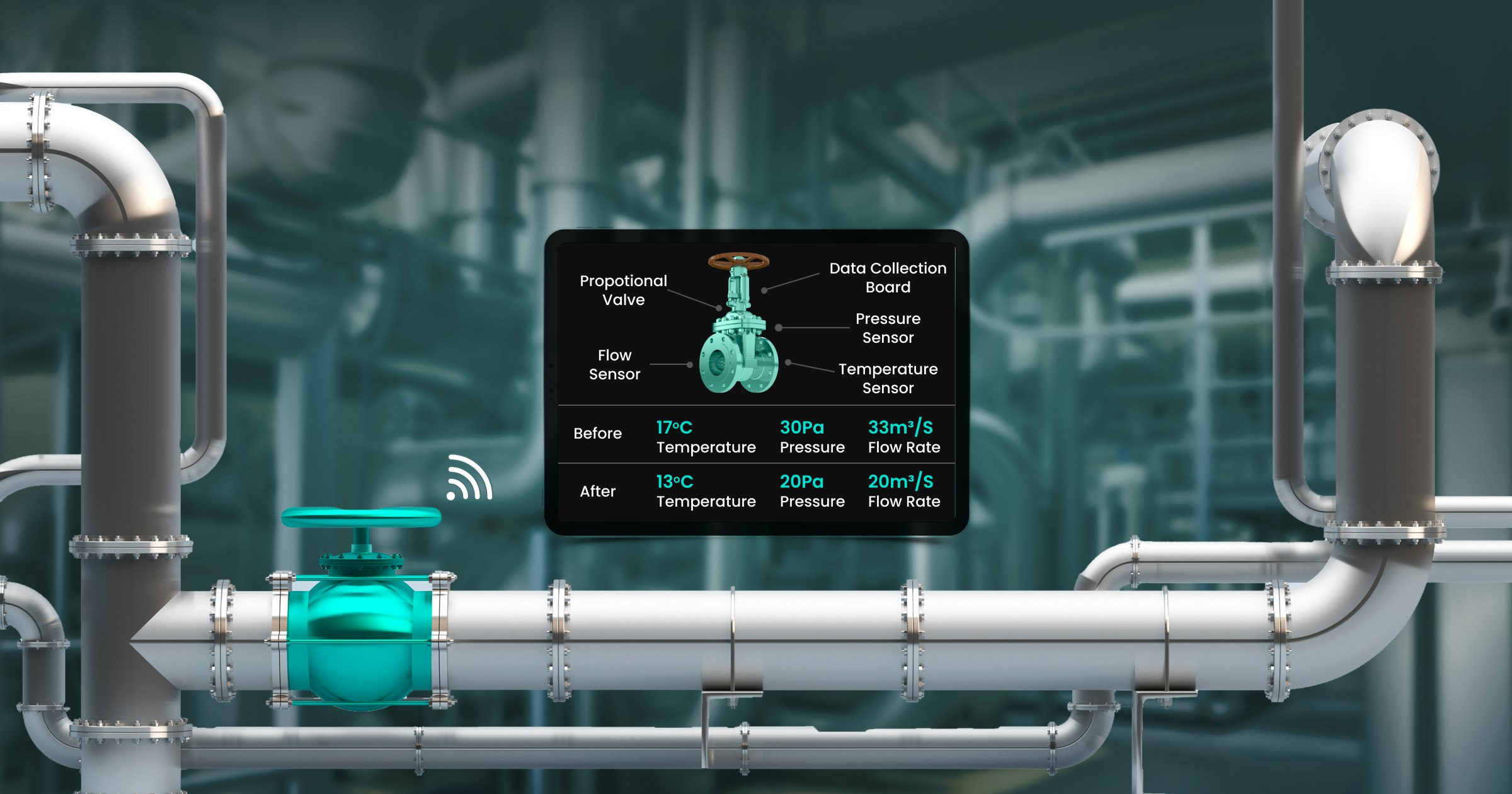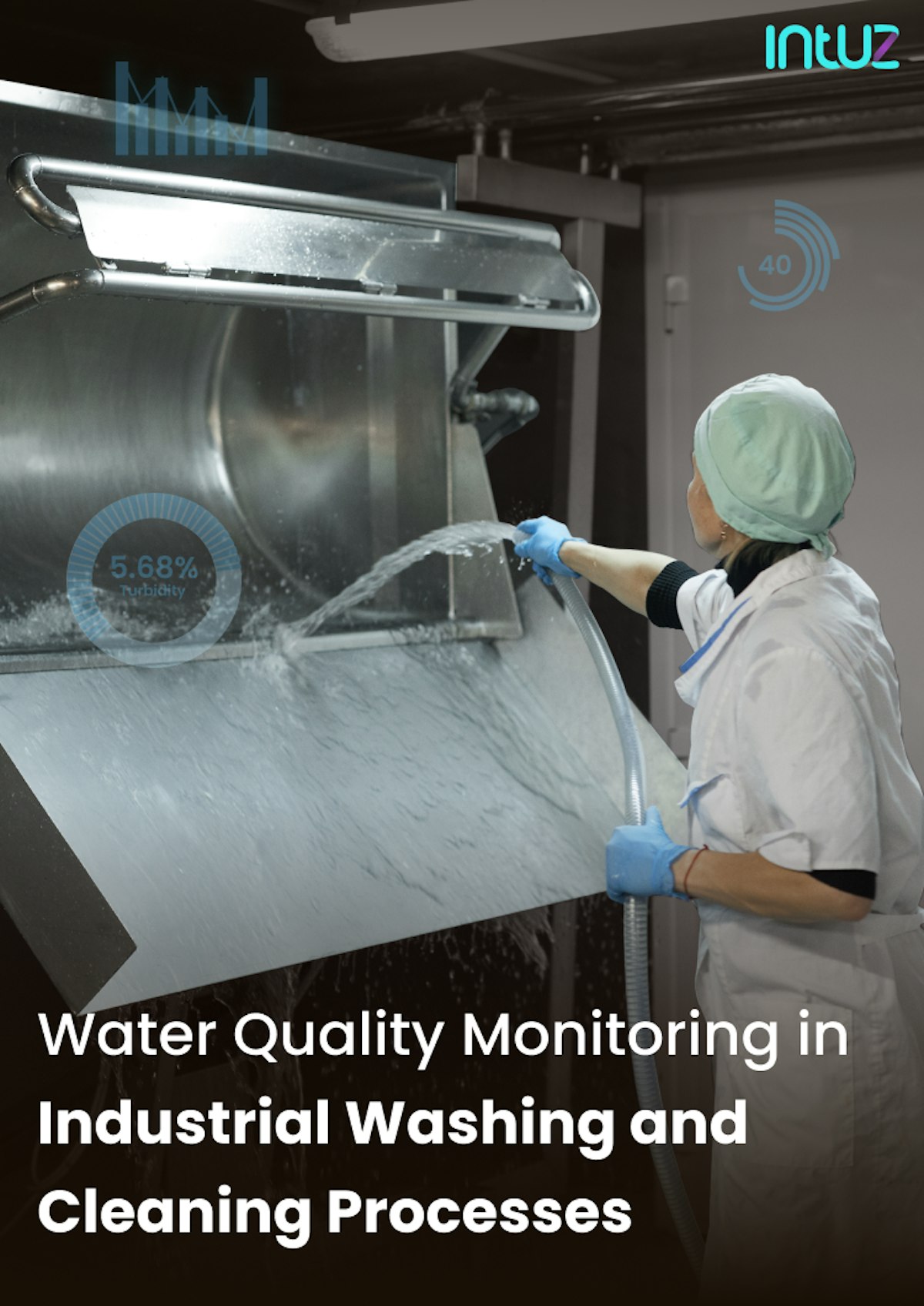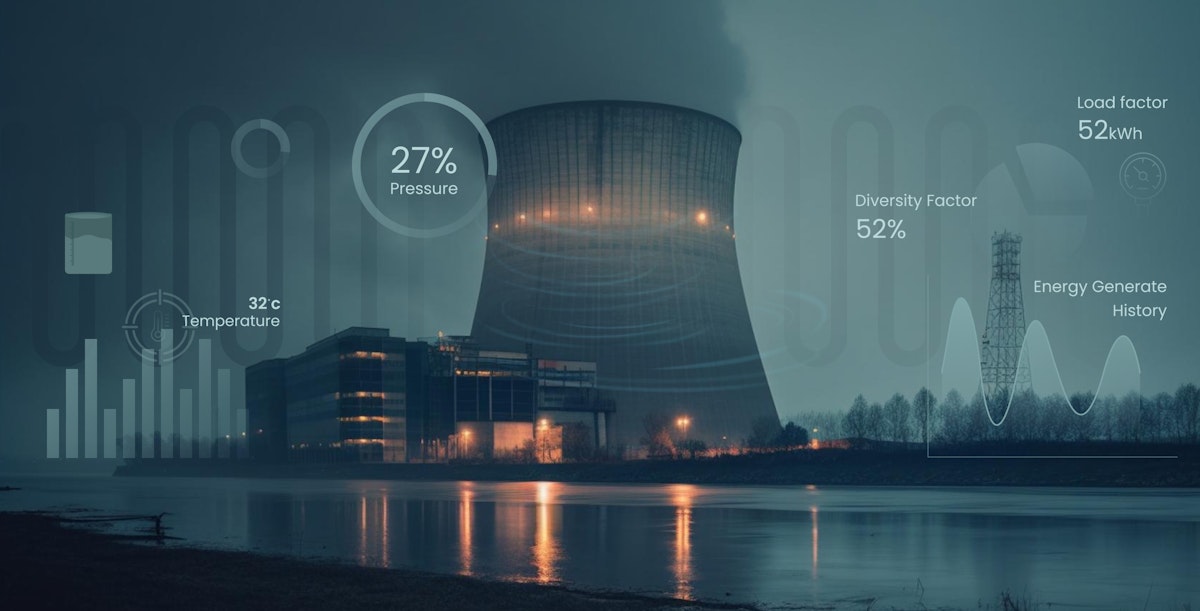Table of Content
Top 5 Challenges of Smart Valves
IoT-enabled smart valves offer several benefits in terms of control, automation, and efficiency. However, they also pose some challenges, such as gas and water leaks, problems with manual management, maintenance knowledge, and resource needs.
- Leakage: Smart valves have the potential to leak gas or water. This can be caused by defective valves, poor installation, or human error. Leaks can waste resources and pose safety risks. It is important to use efficient leak detection techniques and perform routine maintenance to prevent leaks and damage.
- Manual management: Smart valves can sometimes require manual assistance, even though they are IoT-enabled. This can be difficult, especially in large-scale industrial settings with many valves. Manually controlling each valve can be time-consuming, ineffective, and prone to human error. Intelligent response and automated scheduling solutions can help reduce the need for manual intervention.
- Forgetting to switch on or off: Smart valves can also be forgotten to be turned on or off, which can waste resources or jeopardize safety precautions. Intelligent response and automated scheduling solutions can help reduce the need for manual intervention by automatically turning valves on and off as needed.
- Lack of maintenance awareness: Traditional valves often do not have the ability to provide real-time information about maintenance needs. Operators may neglect critical maintenance if they do not have the right understanding of smart valve maintenance requirements. This can lead to potential problems, decreased performance, and longer downtime. The integration of predictive maintenance capabilities into smart valve systems can help overcome this challenge by monitoring important parameters and sending out proactive maintenance alerts.
- Resource and financial requirements: Manually operating a Wi-Fi water valve can be more labor-intensive and costly than using an IoT-enabled smart valve. It can be labor-intensive for staff to manage and keep track of a lot of valves physically. Manual procedures can also lead to inefficiencies and higher operational costs. IoT-enabled smart valves can improve resource allocation, streamline processes, and reduce the need for manual intervention.
How do smart valves work?
Smart valves provide various functions that improve control, monitoring, and efficiency in industrial settings thanks to their IoT-enabled capabilities.
These innovations offer advanced functionality while addressing typical problems with conventional valves. The flawless functioning and optimization of smart valve systems are made possible by the combination of these qualities.
Upgrade Your Industrial Valves Our IoT Expertise!
Let's Discuss SolutionsFeatures of Smart Valves
Smart Metering Control
Smart valves contain smart metering control systems, enabling accurate distribution and measurement of resources like water and gas. Smart metering control promotes effective resource usage, reduces waste, and optimizes performance by precisely monitoring and controlling flow rates.
Proper Distribution of Resources
Smart valves regulate flow rates and pressure to guarantee the equitable distribution of resources. They keep the supply steady and balanced, avoiding problems like water hammer, ineffective distribution, and excessive usage.
Leak Detection
Smart valves use advanced sensors and algorithms to detect leakage early. By continuously monitoring pressure and flow rates, smart valves can spot anomalous changes and notify operators about potential leakage. This helps limit damage and avoid resource waste.
Time-controlled Automatic operations and automated scheduling
Smart valves can be programmed to operate automatically on a set schedule. This function eliminates manual intervention by allowing valves to open or close at specified, pre-set intervals. Automated scheduling ensures systems run smoothly, minimizes human error, and efficiently uses resources.
Eliminating Over-Usage
Smart valves can help us save water by monitoring how much water we use, setting limits on how much water we can use, and encouraging us to use water more sustainably. They can identify and prevent us from using too much water by constantly monitoring our water usage. They can also set predetermined limits on how much water we can use, which can help us avoid wasting it. Additionally, smart valves can be used to encourage us to use water more sustainably, such as by watering our plants during the cooler hours of the day or fixing leaks promptly.
Remote Monitoring
Smart valves with IoT capabilities allow for remote monitoring. Operators can access real-time data and valve status anywhere, enabling effective management and quick action in urgent situations. Remote monitoring reduces the demand for on-site presence and increases operational flexibility.
Intelligent Response from the Smart Valve System
Smart valves use advanced machine learning algorithms and AI capabilities to react thoughtfully to shifting circumstances. Based on environmental conditions, system demands, and other characteristics, they can adjust valve settings in real-time, maximizing performance and assuring effective operation.
Automatic Shutoff
Smart valves have automated shutoff systems that work when certain conditions or occurrences occur. Swiftly closing the valve as necessary, such as in the event of a detected leak or abnormal pressure, provides safety and prevents potential damage.
Temperature Control
A few smart valves have temperature-control capabilities. They can alter the flow rates in response to temperature changes to maintain the correct temperature levels. This capability is especially pertinent in applications like HVAC systems, where accurate temperature control is crucial.
Predictive Maintenance
Smart valves use predictive maintenance techniques by constantly tracking important variables and examining performance information. They can anticipate future maintenance requirements and send proactive notifications by identifying patterns and anomalies.
Real-time Information
Smart water valves provide real-time data on performance, machine status, and resource usage. This includes data on flow rate, pressure, temperature, and any anomalies found. Real-time data gives decision-makers insightful knowledge that helps them take quick action and improve system performance.
Water Quality Monitoring in Industrial Washing and Cleaning Processes
Learn MoreAdvantages of Smart Valves in Industrial Settings
Using smart valves in industrial settings has several benefits that improve operational performance, safety, and cost-effectiveness. The main benefits of smart valves in industrial settings are examined in this section, focusing on smart gas valves and innovative water shutoff systems.
Cost-effectiveness
Smart valves provide affordable solutions by efficiently using resources. They guarantee accurate gas and water control and distribution, eliminating waste and lowering related expenses. Smart valves assist organizations in reducing utility costs and maintenance costs by minimizing leaks and offering effective automation.
Energy Savings
Energy savings are made possible by smart valves' effective control mechanisms. Smart valves ensure that gas and water usage aligns with actual needs, reducing excessive consumption through real-time monitoring and intelligent response systems. Operating costs are decreased by this energy-saving innovation, which also promotes environmental sustainability.
Risk Reduction and Increased Safety
By lowering or eliminating the risks associated with gas and water operations, smart valves improve safety. Smart gas valves and water shutoff systems can quickly identify and reduce potential risks since they include sophisticated leak detection mechanisms and automated shutoff capabilities.
Remote Control Capabilities
Smart valves make remote monitoring and control convenient thanks to IoT connectivity. Operators may access and control the valves remotely via mobile devices or from a central location. This function offers adaptability and simplifies operational administration, enabling quick response and modification when necessary.
Quick Analysis
Real-time monitoring and data analytics capabilities are built into smart valves, enabling speedy system performance analysis. Operators can quickly make educated decisions thanks to access to information such as pressure, flow rates, and maintenance warnings.
Reduced Maintenance Requirements
Utilizing real-time data and analytics, smart valves can predict maintenance requirements. Smart valves can proactively identify potential difficulties and plan maintenance tasks by monitoring valve conditions, performance indicators, and environmental factors.
Enhanced Reliability
Smart valves, unlike conventional valves, offer improved reliability thanks to advanced technology and intelligent automation. They are made to function effectively, precisely, and consistently, reducing the possibility of system failures or breakdowns. This dependability guarantees continuous operations and lowers the possibility of expensive disruptions.
Optimizing Industrial Washing Processes With IoT-Based Pump Monitoring
Learn MoreUse Cases of Smart Valves
Smart valves are used in many different industries because they improve productivity, convenience, and safety. The following are some well-known applications for installing smart valves:
Gas Valve Control
Gas supply control in residential, commercial, and industrial environments requires smart valves. Ensuring accurate control, leak detection, and automated shutoff systems to improve safety and reduce waste.
Water Valve Control
Smart water valves can efficiently control water supply systems, ensuring optimal distribution and conservation. They include capabilities including automated shutoff, leak detection, and remote monitoring, reducing the chance of water damage and preventing water waste.
Automatic Water Supply and Water Sprinklers in Farms
In automated water supply systems and water sprinkler installations in agricultural contexts, smart valves are essential. They make it possible to precisely control and schedule irrigation, preserving water supplies and encouraging effective farming methods.
Power Plants
Power plants use smart valves to regulate the flow of various fluids, including water, steam, and cooling agents. Their automated capabilities and real-time monitoring help plants run more smoothly, cutting downtime and increasing energy output.
Homes
Gas and water supply systems can be managed in homes by installing smart valves. They include remote control, leak detection, and automated shutoff functions to improve resource management, safety, and convenience.
Office Towers and Retail Mixed Complexes
Smart valves allow centralized control and monitoring of the gas and water supply systems in major office towers and mixed-use developments. They reduce waste, facilitate effective resource allocation, and support energy savings.
Universities, Schools
Smart valves are useful in managing educational facilitie's water and gas supply systems. They support effective resource management in educational facilities, ensure safety, and enable remote control and monitoring.
Hotels/Resorts, Hospitality and Leisure
In the hospitality sector, where precise control of the water and gas supply systems is essential, smart valves are useful. It provides remote control, leak detection, and automated shutoff to ensure guests are safe and comfortable and that resources are used effectively.
How IoT is Solving OEMs' Challenges in Steel Manufacturing
Learn MoreConclusion
Smart valves have enormous potential in industrial settings and offer substantial advantages. Their use of IoT technology improves the valves' performance and efficiency, improving operations and resource use. Smart valves provide remote control, real-time monitoring, and intelligent automation by utilizing IoT capabilities, which lead to cost-effectiveness, energy savings, and improved safety.
As more sectors adopt smart technology, smart valves have become crucial in streamlining industrial procedures. Smart valves have completely changed how valves are operated, improving cost-effectiveness, efficiency, and safety in industrial settings.
Contact us today for a free consultation with our IoT experts to explore the possibilities of this technology and identify how smart valves can improve your industrial operations.






